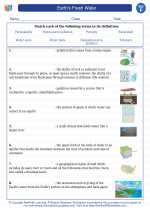Earth's Fresh Water -> groundwater
Groundwater
Groundwater is the water found beneath the Earth's surface in the cracks and spaces between rocks and soil particles. It is found in the saturated zone, where all the spaces are filled with water. Groundwater is a vital natural resource that supplies water to wells and springs, and it also plays a crucial role in the water cycle.
Formation of Groundwater
Groundwater is formed when rain and surface water seep into the ground through the process of infiltration. As the water moves through the soil and rocks, it fills the spaces between particles, forming underground reservoirs of water.
Importance of Groundwater
Groundwater is important for drinking water supply, irrigation, industrial uses, and maintaining the flow of rivers and streams. It also helps to sustain wetlands and ecosystems by providing a source of water during dry periods.
Study Guide
- What is groundwater and where is it found?
- How is groundwater formed?
- Discuss the importance of groundwater.
- What are some ways in which groundwater is used?
- Explain the role of groundwater in the water cycle.
Remember to understand the concepts of porosity, permeability, and aquifers as they relate to groundwater. Additionally, study the potential threats to groundwater such as pollution and over-extraction, and the methods for groundwater conservation and management.
Be prepared to discuss real-life examples of groundwater usage and the impact of human activities on groundwater quality and quantity.
Good luck with your studies!
.◂Science Worksheets and Study Guides Sixth Grade. Earth's Fresh Water
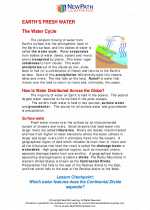
 Worksheet/Answer key
Worksheet/Answer key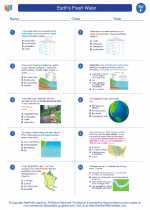
 Worksheet/Answer key
Worksheet/Answer key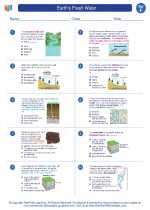
 Worksheet/Answer key
Worksheet/Answer key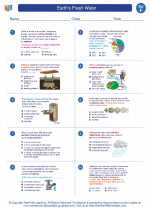
 Vocabulary/Answer key
Vocabulary/Answer key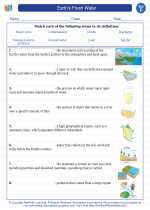
 Vocabulary/Answer key
Vocabulary/Answer key